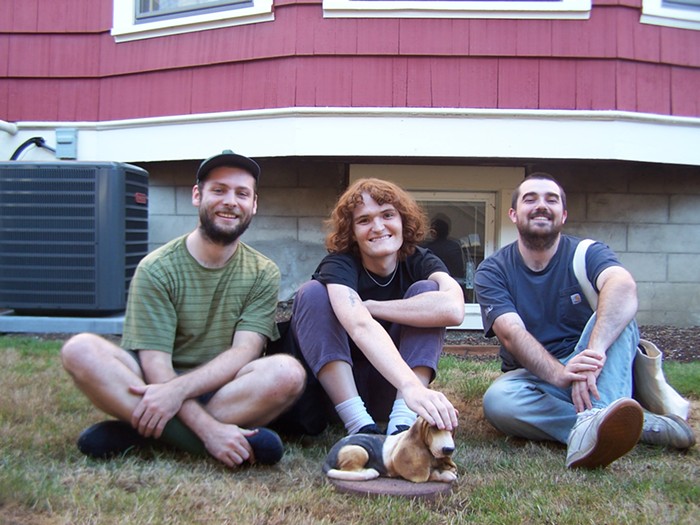Long before relocating to Portland and starting a family, Scott Garred was the tempered frontman for Austin, Texas, indie trio Silver Scooter, a band primed—in a perfect world—for greatness (like Death Cab for Cutie, years before it was even a thought in Ben Gibbard's young mind). Of course, that never happened, and along the way Garred created Super XX Man, a vehicle for his solo recordings. These efforts now number a dozen—the release of Vol. XII: There'll Be Diamonds will be celebrated this week—and Garred has, as of late, tucked away the low-fi charm of his earliest recordings in favor of a full band and a more ambitious leaning toward robustly assembled pop songs. Lyrically, Vol. XII addresses Garred's experiences in his career as a musical therapist at the Oregon State Hospital, but also expands to delicately shine a light on the minutia of everyday life, in all its beauty and pain. Garred took a moment to talk about the new record and his intriguing day job.
MERCURY: There seems to be a theme to Vol. XII: There'll Be Diamonds revolving around your time spent conducting musical therapy at Oregon State Hospital. For those of us not familiar with the process of music therapy, how does that work?
GARRED: The incredible people that I spend my days with—the people in the halls of the hospital, the people braving real situations for the first time in a long while, the real people whose reality is very different and yet not so different from mine—influence every song on the album. I've been a music therapist long enough that it was only natural to express this aspect of my life in an album format. The theme is the people. People at the hospital are truly authentic, more real than you or I can possibly be.
As far as music therapy goes, I play music with the patients. We have a rock band. We write songs. We have drumming circles. We do music listening groups and dance parties. Generally speaking, I set the stage but it is the participant that is choosing the tempo, the memory to resurrect, the wound to heal, or the alter ego to express. What I try to do as a music therapist is work with them, using music as a tool, to help them feel good about themselves and the place they hold in this world, so that when they leave the hospital they have a few more tools to help them be successful.
After so many years of making Super XX Man recordings, do you find yourself constantly attempting to expand the limitations of the project?
Super XX Man was born on four-track cassette in my Pullman, Washington, shitty college apartment. Since then, it's been about an album/EP per year for over 13 years, and with each one it's a different artistic and technical process. The other big difference between Super XX Man now, versus back in the day in my crappy apartment with the four-track, is I now have a constant group of people joining me on and off stage. I'm quite lucky to be joined by my wife, Michelle; friends Alison Wesley singing, playing flute; Bob Ham at the drums; Kelly Dachtler on bass; and Mike Johnson playing whatever is needed after that. John Vecchiarelli, Josh Woods, and Tony Moreno have also inspired me and contributed greatly to the music.
Super XX Man performs at the Someday Lounge on Sunday, November 23.



















